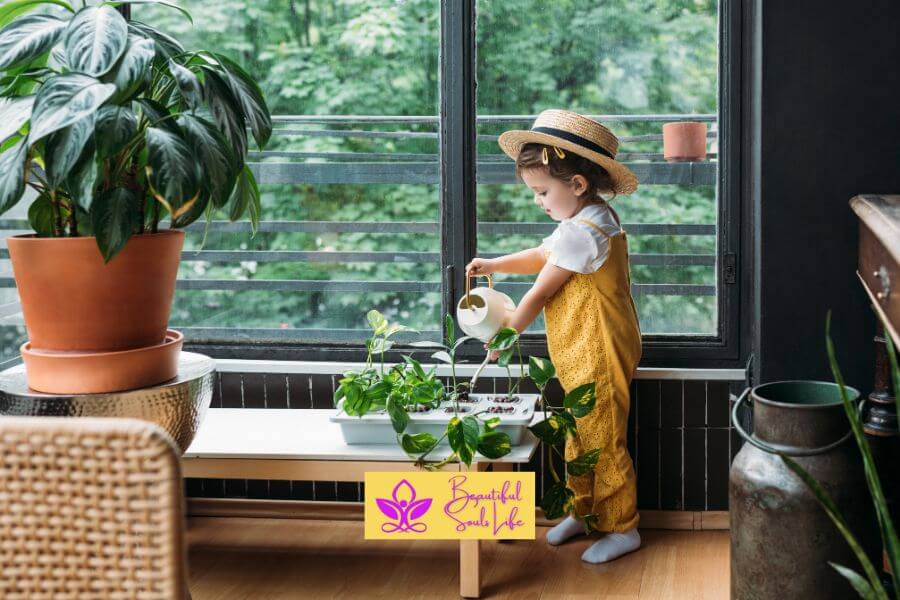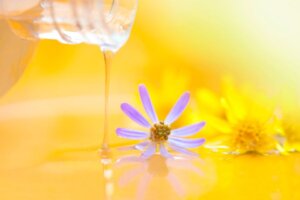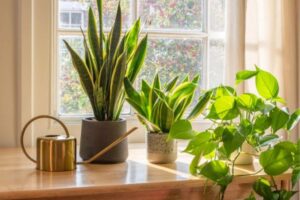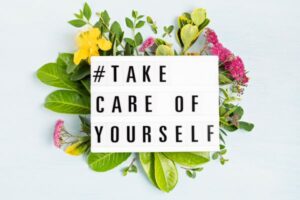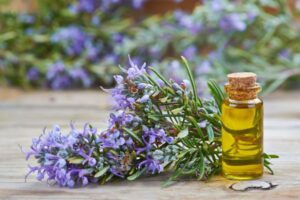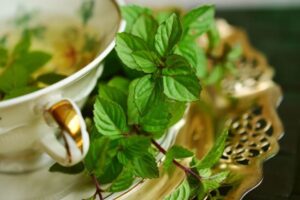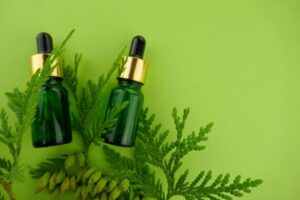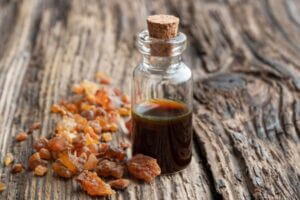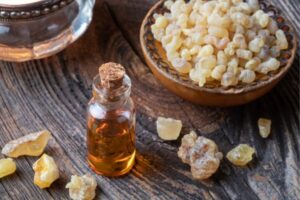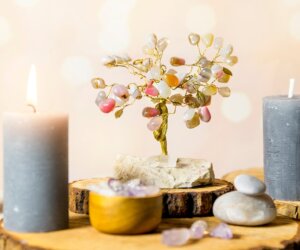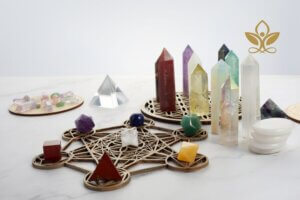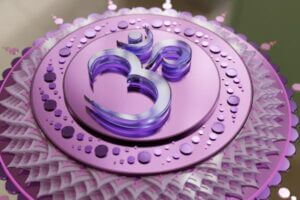The importance of creating an intimate environment that includes Mother Nature is something personal for me and many other people who suffer from seasonal affective disorder during the long winter months of the north. Of course, if you live in northern climates, you are probably aware of the seasonal ups and downs.
In fact, during the 1980s, I lived in Anchorage (and still carry the Alaskan spirit with me wherever I go.) Oregon, which is my home state, is in a northern climate too. But, although it’s usually more temperate weather-wise than Canada or Alaska, it’s still a great breeding ground for the seasonal affective disorder during winter.
7 Ways to Bring Mother Nature Inside
Alaskan businesses wised up decades ago and routinely install full-spectrum lighting in their office buildings to help their employees and customers avoid seasonal affective disorder. On the other hand, it’s been my experience in Oregon that businesses are slow to get the point – to say the least. But, full-spectrum lighting is not the only way to lower your risk for depression during the long winter months ahead.
With that, I’ve gleaned Amazon in search of easy ways to easily add Mother Nature to your intimate environment in your home. Here are a few inexpensive examples that fit most budgets for your information and inspiration.
① Design Your Own Intimate Space Full of Your Favorite Colors
If you’re lucky enough to have a spare room, I suggest that you designate it as your meditation room. Fill it with your most treasured and heartfelt items along with candles, live greenery, crystals, flowers, and moving water. Also, try out some healing music meditation time for yourself. I keep it playing the background on most days as it gives my entire home a feeling of peace and serenity.



Your color scheme is very personal but most people strive to find one that is both relaxing and emits a feeling of serene happiness with the natural light flowing through the room to lift your spirits. But whatever color scheme you select, let your spirit soar with the colors that enliven your life! To learn more about the effects of color on our lives, click through this link to learn more.









② Add a Live Tree for Year-round Enjoyment
Having small trees inside the home can provide numerous mental health benefits. According to a review published in the Journal of Environmental Horticulture, surrounding yourself with plant life and other forms of natural beauty, both indoors and outdoors, can improve mood, reduce stress, encourage physical activity, and enhance overall well-being. Trees actually prove to lower stress levels, improve cognition, and boost longevity.
While specific studies on the mental health benefits of Norfolk Pine, Dwarf Jade Tree, Costa Farms Money Tree, and Ponytail Palm Live Bonsai Plant are limited, it is generally believed that having indoor trees can create a calming environment and promote relaxation. The presence of greenery indoors his associated with reduced symptoms of depression, stronger memory retention, and improved symptoms of attention-deficit disorders. By incorporating these small trees into your living space, you can create a peaceful atmosphere that contributes to your mental well-being.
The Norfolk Pine Tree is at the top of my list for year-round enjoyment. Sold at home supply stores in the garden department, you’ll find them growing in their own pots during the Christmas holidays. Take one home for the holidays and continue to enjoy it long after the sparkling snowflakes are melted away. What’s even better is the aromatic essence of the Norfolk Pine is yours year-round when you bring this tree home to stay.
You may grow your Norfolk Pine at normal room temperature but they’ll be healthier if you keep them in a space that is about 65° f while you keep them a few degrees cooler at night. However, never let them sit in temperatures below 50 degrees. Keep them in bright and natural light, but never place them in direct sunlight. Trim and turn your Norfolk Pine frequently to maintain its delightful symmetry.





③ Experience Waterfalls and River Rocks Inside Your Home
How wonderful it is that something so natural is also so soothing. The peaceful sounds of water falls is easy to realize in your home. You might also set it by a green plant or keep it on your bedside meditation table for the daily joy of listening to the flowing, falling water.
Waterfalls are often associated with tranquility and serenity. The sound of flowing water can create a soothing atmosphere that helps to calm the mind and reduce stress. According to some studies, negative ions produced by waterfalls can increase the levels of serotonin, a mood-enhancing chemical in the brain, which may help alleviate depression and boost energy levels.
The truth is, creating a peaceful home environment is an effective strategy for managing stress. By using elements like waterfalls into your living space, you can enhance the overall ambiance and promote a sense of calmness and relaxation. While waterfalls inside the home may not be practical for everyone, there are other ways to introduce the calming effects of water into your living space, such as using indoor fountains or nature-inspired artwork. Remember, it’s important to consult with a healthcare professional for personalized advice on managing depression.



④ Listen to the Soothing Sounds of Mother Nature
Put your feet up and put the headphones one while you feel the stress leaving your body as you listen to the soft rains and gentle winds through a forest. Another plus to this sound technique is that it drowns out annoying sounds like not-so-distant freeways. Plug this into a portable speaker and set it beside your desktop waterfalls or plants for a layered natural sound effect. Of course there are many nature sounds that sooth the mind and relax the spirit.
Listening to the soothing sounds of nature can have a calming effect on the mind and body. According to a study published in the journal Scientific Reports, natural sounds like leaves rustling in the wind or water flowing down a stream can physically alter our brains’ connections, reducing our body’s natural fight-or-flight instinct and promoting relaxation. The study also found that listening to nature sounds can decrease pain and anxiety and even improve post-surgery recovery times. Moreover, nature sounds act as a distraction away from day-to-day anxiety and worries, redirecting our tensions and stresses outward to objects and movements outside.
In addition to listening to nature sounds, you can also try spending time in nature, such as taking a walk in the park or hiking in the woods. Remember, it’s important to consult with a healthcare professional for personalized advice on managing stress and anxiety.



⑤ Use Essential Oils for Soothing your Senses
Essential oils have been in use by humans for thousands of years. In fact, it’s common knowledge that ancient Greeks and Egyptians used a wide variety of essential oils. But, essential oils are not just for a nice fragrance in the home. Rather, throughout their rich history, essential oils helped to heal and balance our overall well-being. And, that’s exactly what they do today!
Here are 14 Essential Oils to Help you Overcome Depression
Personally, I like to use essential oils to help ease my symptoms of stress and depression and I can attest that essential oils are one of the nicest parts about healing in my life. So, I heartily recommend that you do research into the oils that are right for you. However, if you’d like an easy introduction, please click through this link for a list of essential oil and guidelines to their uses.
1. Aniseed

Aniseed’s use as an ancient spice and flavoring among Romans, Greeks, and Egyptians is still popular today. The anise essential oil, due to its sedative effects, is both a natural anti-depressant and a relaxant which makes this a favorite of many who seek relief.
This 2017 clinical trial used anise oil for treating depression in IBS patients. 120 patients were given capsules containing anise oil or peppermint oil or a placebo. After a 4-week trial, the anise group were far less depressed than the other groups. And in a follow-up, two weeks after the trial, the anise group still had lower levels of depression. So, naturally it follows that is a way to explore how to overcome depression.
If you need a muscle relaxer or need to clear your airways to improve your breathing, this is the oil for you. Other benefits include the ability to reduce inflammation, reduce tinnitus, and neutralize free radicals. It also helps eliminate bacteria and fungi.
Aniseed is a powerful essential oil, so only use light dosages because it slows down both your breathing and circulation. Importantly, it is also poisonous for small animals and birds. As always, test it on your skin before you use it topically as it might cause irritation for some skin types. Also avoid during pregnancy or if you have certain types of cancer due to the effect of the estrogen hormone.
2. Basil

Basil is an ancient herb known for its use in Ayurvedic medicine as well as it’s more common use in cooking. The leaves and seeds of this herb are where the medicinal qualities of this plant are derived. Its modern uses include relief of headaches and menstrual discomfort.
Additionally, basil is naturally high in a lot of antioxidants and Vitamin C. But it also stimulates the adrenal glands which bring up energy levels and reduces fatigue which helps overcome depression.
Other uses include treating nervous tension, mental or emotional fatigue, and migraines. Because of its energetic boost, use of this medicinal herb also helps bring about the clarity of thoughts and feelings.
Use Basil oil topically by massaging it into the skin or you may ingest it orally as a digestive tonic. Caution: If you are pregnant, do not use basil essential oil.
3. Bergamot

Many consider this to be one of the best oils to overcome depression. One thing to note about Bergamot is that it makes some people photosensitive which means you have to stay out of the sun for a while.
The refreshing citrus aroma of bergamot is what wakes up your senses and is the direct result of the better circulation of blood flow. Additionally, studies show that bergamot is an effective natural remedy to overcome depression and anxieties.
A good way to use bergamot is to rub 2 or 3 drops in your hands which you then inhale from hands cupped in front of your face. Also, remember the photosensitivity quality of bergamot and stay out of the sun for a bit after use.
4. Chamomile

For most of us, when we think of chamomile, an image of a warm cup of relaxing tea comes to mind. Do you know that the active component in chamomile is ‘Apigenin’ which is what helps overcome depression? Interestingly, the word chamomile is from the Greek Chamomaela and translates to “ground apple” which describes the scent of the flowering bush.
The ancient Egyptians were the first to record the uses of chamomile to cure ‘Ague’ which is a bad fever. However, you’ll find this herb helps with a variety of illnesses among many other uses.
According to a study done by researchers from the Perelman School of Medicine at the University of Pennsylvania, long-term chamomile use is effective for generalized anxiety disorder.
As I said, the most popular way to consume chamomile is through a nice cup of tea. However, it’s good to know that the essential oil is found by many to be more effective than tea. You may get benefits with a diffuser or apply it topically to your skin.
Smelling this essential oil can do a lot to overcome depression as it eases sadness and lifts your spirits. You will enjoy a peaceful mind, relieve stomach problems, and improve your skin, while you reduce inflammation. Now, that’s a lot of stress-reducing benefits!
5. Frankincense

The woody, natural scent of frankincense lifts your mood by bringing more oxygen to the brain. More specifically, it enhances the pineal and pituitary glands in the brain with its scent that balances hormones.
Frankincense is known by many essential oil lovers as the king of oils. Not only does it support healthy cellular function, it also produces feelings of peace when you inhale it or add it to a diffuser. It also reduces redness of the skin when you use it topically. Moreover, it increases healthy cell function which helps overcome depression and anxieties.
This wonderful essential oil comes from the gummy sap that oozes out of the Boswellia and Commiphora trees when their bark is cut. You may use it either in its dry form as incense or add it to a diffuser. You may also inhale the essential oils from the palm of your hand. Additionally, it works topically when you add a few drops to a carrier oil such as almond or jojoba.
6. Geranium

It is the relaxing and soothing qualities of geranium essential oil that makes it a good choice to help overcome depression.
Studies show that the rose-scented geranium is effective in lowering blood pressure during childbirth. Additionally, it is more effective than acetaminophen in the reduction of menstrual pain when used in combination with other essential oils.
Geranium oil is safe for topical and aromatherapy use. Do not ingest internally without first consulting with a doctor. Children or pregnant or lactating women should also consult with a medical professional before any use.
7. Jasmine

This small, flowering bush was introduced to Europe from Persia in the 16th century but is now grown in temperate climates throughout the world. Jasmine essential oil is a mood enhancer to help you overcome depression and anxieties.
The jasmine flower is best known for its delicate white flowers which give off a sweet floral bouquet that absolutely delights the senses.
Jasmine’s warm and relaxing qualities are enjoyed through inhalation, adding a few drops to a warm bath, in massage therapy, or in a diffuser to brighten your entire room.
8. Myrrh

Myrrh is famous for its inclusion in the biblical story about the three wise men who brought the gifts of gold, frankincense, and myrrh to the baby Jesus. However, this ancient medicinal commodity is known throughout the ages from ancient civilizations to its popular use today as an essential oil. Myrrh essential oil also helps overcome depression because of its calming properties.
The myrrh essential oil is derived from resin and has a rare scent. Some say it smells like black licorice, but its pine, lemon, and sweet wood aroma is unmistakably unique and is soothing yet invigorating.
Diffuse or inhale myrrh to get the effects or for greater benefits, mix it with other essential oils. It is best to blend it with a carrier oil before applying myrrh essential oil to your skin. Myrrh is good as a food additive or flavor, however, before ingesting, consult with a medical professional.
9. Neroli

Neroli comes from the bitter orange tree’s blossom and its sweet and flowery scent is absolutely wonderful. Because neroli oil is derived from citrus fruit, it closely aligns with most other citrus essential oils. This essential oil helps bring joy back into your life and therefore helps overcome depression.
It works topically to reduce scars and spots and it also helps guard against skin infections. It is a natural anti-bacterial so it great to use for infections of the colon, prostate, kidneys, and urinary tracts. Because of its inherent anti-bacterial qualities, use it to remove odor from your home while it disinfects against germs and toxins.
However, it has a strong sedative nature, so don’t use it if you want to sleep. Like all citrus oils, neroli can irritate your skin so be sure to blend it with a carrier oil before application. Also like other citrus oils, it is photosensitizing, take precautions before going out in the sun.
10. Patchouli

Patchouli is an herb plant that also comes from the mint family. It is most known for its earthy aroma and its amazing mood-lifting capabilities.
When you inhale this essential oil, it stimulates the serotonin and dopamine production in your body which helps alleviate depression. So naturally, when this takes place, it calms our senses and helps us overcome depression and anxieties.
You may use this essential oil topically and with or without a carrier oil. You may also inhale it or use a few drops in a diffuser to help relieve feelings of sadness.
11. Peppermint

The great about Peppermint essential oil is how it refreshes and leaves you with a joyous feeling. With its inherent invigorating yet calming effect, it naturally helps reduce mental stress. It is also a fantastic source of many other health benefits and is full of vitamins. For instance, if you get tension headaches, this is the essential oil for you. According to the NCBI, topical treatment with peppermint oil is more effective than placebos in controlled studies.
Because your body spontaneously regenerates when you relax, it is then naturally able to overcome depression. A cross between water mint and spearmint and native to Europe, the peppermint plant now grows all over the world.
Smoothies or drinks come alive with this special flavoring. Or, bring out the diffuser and smell the aroma of peppermint throughout your home. It also works great as a foot scrub or in massage oil.
Peppermint oil is safe for both internal and external use. However, for topical use, test it on your skin before you put it all over and apply it sparingly. You may also dilute it with a carrier oil.
12. Perilla Herbilla

This essential oil comes from the leaves of the perilla plant and is native to Asia. Perilla essential oil is a natural relief to stress, anxiety, and depression. Moreover, it has a memorable fragrance that is something like a combination of pepper, mint, and fragrant wood.
Perilla seed oil has qualities that when inhaled, produce an elevation of spirits. As a result, symptoms of depression seem to dissipate. Additionally, it is said to have a “neuroprotective effect”, the benefits of which are to calm the nervous system. The best part is that you get all this without the negative side effects of prescription medications.
Use the perilla oil in moderate amounts and test for allergies before use. Do not use internally without first consulting with an expert.
Tip o’ the Hat to Health Benefits Times
13. Sweet Marjoram

Marjoram is an herb that we all recognize as a commonly used spice for our food. Do you know that in early Greek mythology, the goddess Aphrodite grew marjoram which now makes it a favorite of those who infuse love potions? If your issues stem from lack of sleep, this essential oil might help overcome depression.
Sweet marjoram lessens stressful anxiety because it both induces sleep and improves blood circulation. In addition to the singular use of sweet marjoram, you may also add other essential oils like lavender or bergamot for a more effective result.
You may use it topically by rubbing it on your feet or neck. It works great if you want to inhale it with cupped hands or you can use it in a diffuser.
14. Turmeric

Turmeric is a very popular oil for many reasons. Certainly, one of the top reasons is because it helps us with tolerance and balance. This, in turn, improves our entire outlook on ourselves and those around us. Many happy people claim that turmeric very effective in helping overcome depression and anxieties.
This ancient plant with all its wonderful qualities dates back over 4,000 years to the Vedic culture in India. However, it made its way around the world and it’s now a common cooking spice.
One Drop = Small Quantity.
Use turmeric essential oil both topically and internally. However, ensure that the oil is of top-quality and use in small quantities.
⑥ Fill Your Office and Home Space Full of Greenery!
During the long winter months, especially in the Northern climates, when you’re getting up when it’s dark to go to work and then when you get off work, it’s dark again. Oh my gosh! You need plants in your cubicles, desks, and offices at work. Start with something simple and build from there. Some variety of plants actually do well under office lights, so start with those. Just as important, is to grow thriving green plants in your home.
Mother Nature takes over as plants of all types are able to filter toxic substances from the air through their leaves. Incredibly, some plants even absorb the most toxic gases such as formaldehyde, benzene, and carbon monoxide. It’s easy to see why this makes healthy house plants one of the best air filters money can buy. Learn more about greenery in your intimate environment!
In 1989, NASA environmental scientist B.C. “Bill” Wolverton published a report that looked towards the future of energy-efficient buildings and addressed the need for a way to remove pollutants from indoor air without increasing ventilation with outdoor air. (This stemmed from the need to address the lack of fresh air exchange in space stations.) His solution was to add a significant amount of houseplants to the indoor area, stating in his report that “plants can play a major role in the removal of organic chemicals from indoor air” (Wolverton, 1989).
VIA Molekule





⑦ Light Boxes are a Great Source of Depression Relief
Among other tactics, lighting is important – it’s one of our basic human requirements. However, there are other elements to use in the interior of your home that help you and your family rise above the winter blues. Ten years ago, these light boxes cost around $300 per box! Now, you can get one that works great for under $50. Plus, there is a huge variety from which to select. That’s a win-win for everyone!
Light boxes are often used as a treatment for seasonal affective disorder (SAD). These devices emit bright light that mimics natural sunlight, compensating for the lack of exposure to sunlight during these seasons. Light therapy can help alleviate symptoms of SAD by boosting mood and energy levels. It’s believed that light therapy works by causing a chemical change in the brain, lifting mood and reducing symptoms such as fatigue and excessive sleepiness.
They work by delivering a therapeutic dose of bright light, typically around 10,000 lux, which is about 20 times brighter than ordinary indoor lighting. Using a light box for about 20 to 30 minutes within the first hour of waking up in the morning is generally recommended.
Please note that light boxes are not regulated by the Food and Drug Administration (FDA) for SAD treatment. Therefore, it’s important to understand your options and use them under the guidance of a healthcare provider.



I sincerely hope this information gives you excellent ideas of your own to get through those long winter months with a light step and a resilient attitude. However, please note that it’s always important to consult with a healthcare professional for personalized advice on managing mental health conditions.
Conclusion
It is our wish that you find this post enlightening and helpful. If you have any questions or suggestions, we love to hear from you in the comments below. Also, kindly accept our invitation to join our group on Facebook to surround yourself with kindred spirits and post your encouraging messages.

